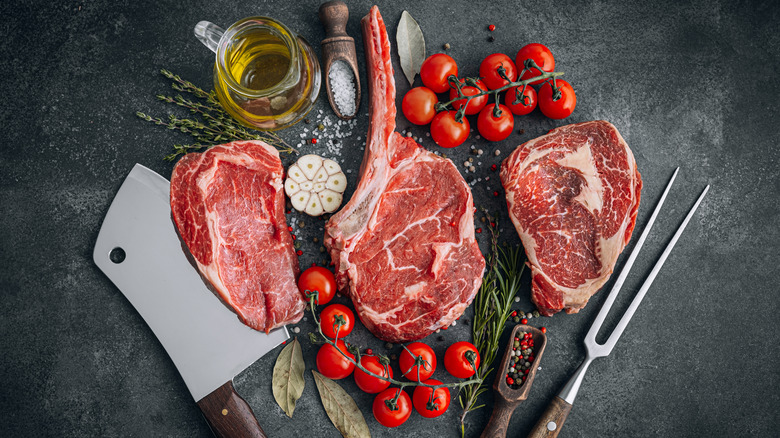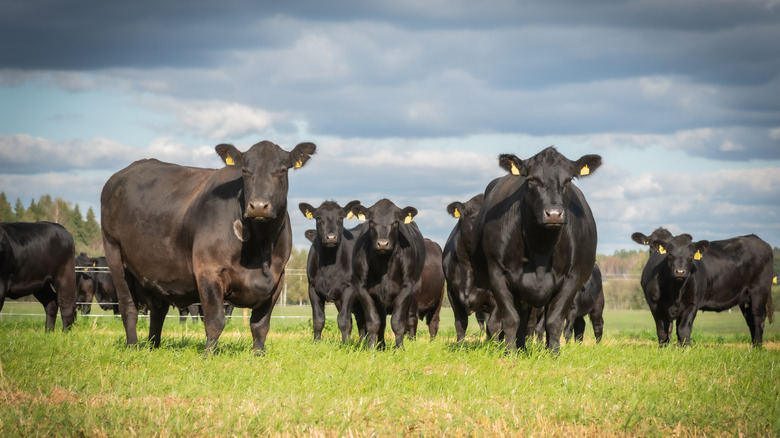Here's What Angus Beef Actually Is
Buying or ordering food can be confusing, especially meat. Not only are there different cuts of each animal, but now we consider where they came from, how they were raised, and what they eat. Standing in the supermarket or at a butcher's counter can become overwhelming. You may ask yourself questions like, "Was it chuck roast or chuck steak needed for the recipe?", "What even is a shank?", "Is grass-fed or organic necessary?".
Not only are there these basics, but in the U.S., there are also quality grades such as U.S. Department of Agriculture (USDA) Choice and USDA Prime for beef. Then don't even get us started on Wagyu vs. Kobe, and why is Wagyu so expensive, anyway? Oh, and aging meat? Clearly, there are a lot of things to consider when it comes to beef. But something listed on a ton of menus, especially when it comes to burgers, is Angus Beef. This term has become synonymous with higher quality, but in actuality, it has nothing to do with a quality grade — hinting that the marketeers in the beef industry must be doing their job well (via Butcher Box). So, what exactly is angus beef?
The Scottish cow, known as the Angus
The term Angus beef refers to the type of cattle; a Scottish breed called Aberdeen Angus. Due to the cold Scottish winters, Aberdeen Angus cattle were bred to develop more muscular bodies to survive (via Steak School). While their origins trace back to Scotland, they were exported to other countries, slowly making their way around the world, including to the United States by 1873. Usually known for their black color, hence why you may see "Black Angus" on a menu, Britannica explains that there is a strain of the breed known as a Red Angus due to their red coloring.
As mentioned, Angus is usually considered a higher quality of meat. While this may not always be true, Steak School notes that the breed is known for a higher level of marbling, or fat, which keeps the beef moist longer while cooking. Marbling tends to lead to a juicier, more flavorful meat, which is why many love it. So, next time you're out shopping for beef, don't be deterred. When buying Angus beef, be sure to still check the type of cut and quality grade, as they will also impact the final dish.

